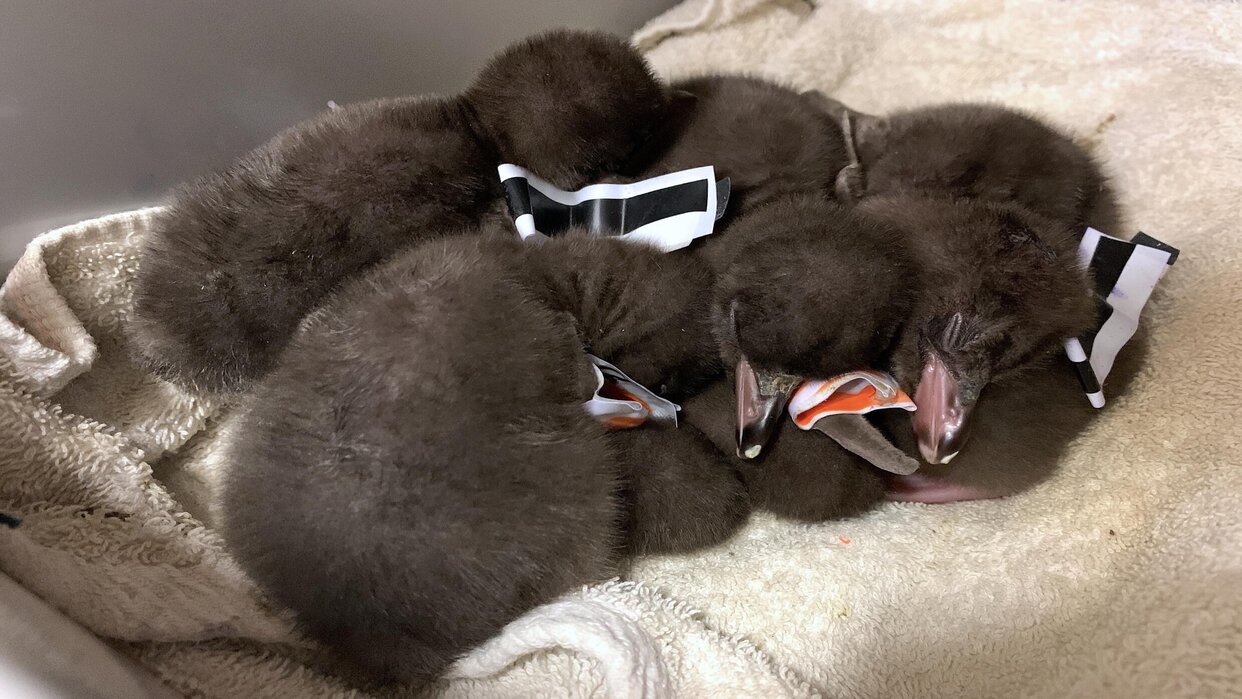A mysterious disease is killing New Zealand’s endangered yellow-eyed penguin chicks, but scientists say they may have discovered the cause.
These New Zealand native birds are unable to fly and do not reach the knees of humans. They have pale yellow eyes and a tuft of yellow feathers around their head.
The New Zealand Department of Conservation estimates that about 2,400 specimens remain alive.
They are classified at the nation’s highest alert level: “Threatened, Nationally Endangered.”
The mysterious respiratory disease affecting them first appeared in 2019 in 20 chicks at the Dunedin Veterinary Hospital.
“They can’t lift their heads and are panting with glassy eyes,” hospital director Lisa Argilla told AFP this week.
“It was heartbreaking to see those little chicks in such a critical condition,” explained the vet.
“All the calves that showed respiratory symptoms died. We could not do anything to save them,” he added.
During the 2020 breeding season, a third of the 150 chicks sent to the hospital died of respiratory problems, the vet explained.
Professor Gemma Geoghegan, an evolutionary virologist, is part of a team of experts investigating the disease.
“The veterinary hospital did everything it could to prevent it, but it’s very difficult to manage without knowing the cause,” he said.
The scientists analyzed tissue samples from the dead chicks with sequencing technology similar to that used to identify the coronavirus that causes Covid-19.
His team identified a new gyrovirus and a new megrivirus, he said.
According to Geoghegan, these two diseases cause the death of 25% of yellow-eyed penguin chicks (about 50 each year).
“We’ve identified what we think is the cause, and a lot of research is now needed to find out whether the disease can be prevented or treated,” he explained.
For now, they take the pups, less than five days old, to the Dunedin Veterinary Hospital, where they can be nursed away from the risk of infection.
By 2022, veterinarians were able to return 90% of the chicks alive to their nests, director Argilla said.
“142 chicks got a second chance,” he said. “If they had stayed in the nest, most would have contracted one of the diseases and died.”
Raising dozens of chicks with a team of 10 to guarantee the cattle’s five daily meals is a “crazy operation,” said the clinic’s director.
Vets, nurses, zookeepers and conservation officers came from all over New Zealand to help them, he said.
Penguins live in two colonies: one in the southwest of the country’s South Island and a larger one in the remote Subantarctic Islands of New Zealand.
The population of the first colonies has declined by 75% since 2008, with only 200 breeding pairs remaining, and experts warn that they are at risk of disappearing within two decades.
Not everything is the fault of these infections. Climate change or predators such as barracudas in the ocean or dogs, cats, ferrets or stoats also wreak havoc.
Argilla hopes to find a vaccine to protect these animals.
“We’re not an ambulance at the bottom of the mountain, doing everything we can to save the birds and, if we’re lucky, prevent population decline,” he said.

“Typical beer advocate. Future teen idol. Unapologetic tv practitioner. Music trailblazer.”

:quality(85)/cloudfront-us-east-1.images.arcpublishing.com/infobae/3ALAO2WVDZFZPFV3QZT6W732AA.jpg)





More Stories
The Devils failed to debut
Alberto Gonzalez won bronze at the Triathlon World Cup in Napier (New Zealand).
New Zealand announces new economic sanctions against Russia